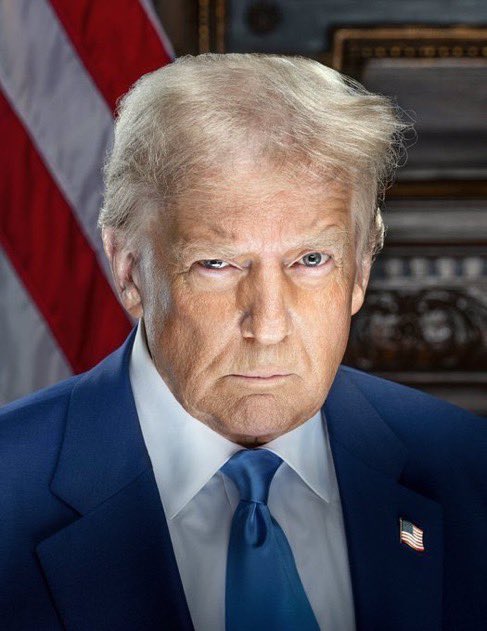Trump escalates the trade fight by threatening to impose 30% tariffs on Mexico and the EU.
Reuters, Washington/Mexico City, July 12 After weeks of discussions with the main U.S. trading partners failed to produce a comprehensive trade deal, President Donald Trump warned on Saturday to put a 30% tariff on imports from Mexico and the European Union beginning on August 1.
Trump announced the fresh tariffs in separate letters to Mexican President Claudia Sheinbaum and European Commission President Ursula von der Leyen, which were posted on his Truth Social social media site on Saturday. The announcements come amid a trade war that has enraged U.S. allies and alarmed investors.
In response, the EU and Mexico—two of the United States’ biggest trading partners—called the tariffs unjust and disruptive and promised to keep negotiating with the United States for a more comprehensive trade agreement before the deadline.
Claudia Sheinbaum, the president of Mexico, expressed confidence that a deal could be reached. “I’ve always said that in these cases, what you have to do is keep a cool head to face any problem,” Sheinbaum stated during a speech in the Sonora state of Mexico.
“We also know exactly what we can and cannot do in collaboration with the US administration. And our nation’s sovereignty is something that can never be compromised,” she added.
This week, Trump wrote similar letters to 23 other trading partners, including Canada, Japan, and Brazil, proposing a 50% tax on copper and blanket tariff rates ranging from 20% to 50%.
The U.S. president stated that the 30% rate was “separate from all sectoral tariffs,” meaning that import taxes of 25% on cars and 50% on steel and aluminum would continue to be in place.
The targeted nations have until August 1 to reach arrangements that could reduce the proposed penalties. Trump’s history of reversing his tariff threats has also drawn criticism from some economists and investors.
The barrage of correspondence demonstrated that Trump had reverted to his assertive trade stance, which he adopted in April when he declared several punitive duties against China
‘UNFAIR TREATMENT‘
However, Trump is not letting up on his trade war, even if the U.S. economy is still strong and the stock market has reached all-time highs.
Although he has only obtained framework agreements with China, Vietnam, and Britain, he pledged to use the 90-day delay in April to negotiate hundreds of additional trade agreements.
For the 27-nation group, the EU has aimed to establish a comprehensive trade agreement with the U.S.
Trump demanded that Europe remove its own tariffs in his letter to the EU. “The European Union will allow complete, open Market Access to the United States, with no Tariff being charged to us, in an attempt to reduce the large Trade Deficit,” he stated.
According to von der Leyen, the 30% tariffs
RATE FOR MEXICO LOWER THAN CANADA
Despite government data showing the amount of fentanyl intercepted at the Mexican border is substantially higher than the Canadian border, both letters cite fentanyl flows, and Mexico’s proposed tariff level is lower than Canada’s 35%.
“Mexico has been assisting me with border security, but their efforts are insufficient. The cartels are attempting to use all of North America as a playground for narco-trafficking, and Mexico has yet to stop them,” Trump wrote.
The majority of the ingredients used to produce fentanyl, an opioid, come from China. The majority of fentanyl intercepted in the United States originates from the U.S.-Mexico border, with only 0.2% coming from across the Canadian border, according to U.S. police.
More than 80% of Mexico’s total exports go to the United States, and in 2023, free trade with its northern neighbor propelled Mexico to the top of the U.S. trading rankings.
In recent years, the EU has tempered its initial hopes of reaching a full trade agreement in favor of getting a more comprehensive framework agreement, akin to the one mediated by Britain, which leaves details up for negotiation.
Powerhouse Germany called for a speedy agreement to protect its sector, but other EU members, like France, have stated that EU negotiators should not accept a one-sided agreement on U.S. conditions, putting the bloc under competing pressure.
Brussels should implement countermeasures as early as Monday, according to Bernd Lange, leader of the European Parliament’s trade committee. “The negotiations are being slapped in the face by this. Dealing with a significant commercial partner in this manner is unacceptable,” Lange told Reuters.
According to Jacob Funk Kirkegaard, a senior scholar at the Brussels-based think tank Bruegel, Trump’s letter increased the possibility that the EU would take punitive action like to the U.S.-China spat that shook global markets.

